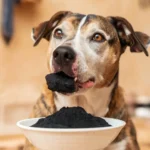Have you ever wondered what dogs have a long body? Moreover, are you curious about the health benefits of salmon for these unique canines? In this comprehensive guide, we’ll explore the fascinating world of long-bodied dogs and delve into the nutritional aspects of salmon in their diet. So, let’s embark on this informative journey together!
The Allure of Long-Bodied Dogs , what dogs have a long body
Long-bodied dogs have captivated dog lovers for centuries with their distinctive appearance and charming personalities. These elongated canines often possess a unique combination of traits that make them stand out in the canine world. From their extended spines to their short legs, these breeds have evolved to excel in various tasks and environments.
Dachshunds: The Quintessential Long-Bodied Dogs
When discussing what dogs have a long body, it’s impossible not to mention the iconic Dachshund. These lovable “wiener dogs” are perhaps the most recognizable long-bodied breed. Originally bred for hunting badgers, their elongated bodies allowed them to burrow into tight spaces with ease. Today, Dachshunds are beloved family pets known for their loyalty and spunky personalities.
Corgis: Short-Legged Royalty
Another breed that exemplifies what dogs have a long body is the Corgi. These short-legged, long-bodied dogs come in two distinct varieties: the Pembroke Welsh Corgi and the Cardigan Welsh Corgi. Despite their small stature, Corgis were traditionally used as herding dogs, with their low-to-the-ground build allowing them to nip at the heels of cattle without risking kicks.
Basset Hounds: Droopy-Eared Detectives
Basset Hounds are another prime example of what dogs have a long body. These gentle giants are known for their exceptionally long ears and droopy faces, which complement their elongated bodies perfectly. Originally bred for hunting, Basset Hounds use their powerful sense of smell to track scents over long distances.

The Health Benefits of Salmon for Long-Bodied Dogs
Now that we’ve explored what dogs have a long body, let’s discuss an important aspect of their diet: salmon. Many dog owners wonder, “Is canned salmon healthy for dogs?” or “Is salmon skin healthy for dogs?” Let’s dive into these questions and more.
Is Canned Salmon Healthy for Dogs?
Canned salmon can indeed be a healthy addition to your long-bodied dog’s diet. It’s rich in omega-3 fatty acids, which support joint health – a crucial factor for breeds prone to back problems due to their elongated spines. However, it’s essential to choose canned salmon packed in water rather than oil and ensure it’s unseasoned.
Is Salmon Skin Healthy for Dogs?
When considering what dogs have a long body and their nutritional needs, salmon skin often comes into question. The good news is that salmon skin can be healthy for dogs when prepared correctly. It’s an excellent source of omega-3 fatty acids, which can promote a shiny coat and support overall skin health.
Is Cooked Salmon Healthy for Dogs?
Cooked salmon is generally a safe and healthy option for long-bodied dogs. It provides high-quality protein and essential nutrients that can support their unique physiology. When preparing salmon for your dog, ensure it’s thoroughly cooked and free from seasonings or added oils.
Is Raw Salmon Healthy for Dogs?
While raw diets have gained popularity, it’s important to exercise caution when it comes to raw salmon. Raw or undercooked salmon can contain parasites that are harmful to dogs. Therefore, it’s generally recommended to avoid feeding raw salmon to your long-bodied canine companion.
Caring for Long-Bodied Dogs: Special Considerations
Understanding what dogs have a long body is just the first step in providing optimal care for these unique breeds. Their distinctive physique requires special attention to certain aspects of their health and lifestyle.
Back Health: A Top Priority
Due to their elongated spines, long-bodied dogs are more susceptible to back problems such as intervertebral disc disease (IVDD). To mitigate this risk, it’s crucial to:
- Maintain a healthy weight to reduce stress on the spine
- Use ramps or stairs for accessing furniture or cars
- Avoid activities that put excessive strain on the back, like jumping from heights
Exercise: Tailored to Their Build
While long-bodied dogs need regular exercise, it’s important to tailor activities to their unique physique. Low-impact exercises like swimming can be excellent for maintaining fitness without putting undue stress on their backs.

Nutrition: Balancing Act for Dogs with Long Bodies — Discover What Dogs Have a Long Body
Proper nutrition is vital for all dogs, but it’s especially crucial for those with long bodies. A balanced diet that supports joint health, maintains a healthy weight, and provides essential nutrients is key. This is where the benefits of salmon can play a significant role in their diet.
Salmon in the Diet of Long-Bodied Dogs: A Closer Look
Now that we’ve established what dogs have a long body and touched on the general health benefits of salmon, let’s delve deeper into how this nutritious fish can specifically benefit elongated canine breeds.
Omega-3 Fatty Acids: Joint Support for Long Spines
The salmon will be greatly beneficial for long-bodied dogs, especially because of the extended spine, due to their omega-3 fatty acids. These essential nutrients reduce inflammation, very important for breeds predisposed to back issues. A regular diet inclusive of salmon will help contribute to better joint health and mobility.
Protein: Building Blocks for Strong Muscles
Salmon is also rich in high-quality protein, which is necessary to help maintain healthy muscles. For long-bodied dogs, well-developed muscles along the spine and core might be of particular importance for support.
Vitamins and Minerals: Overall Health Support
Beyond omega-3s and protein, salmon is rich in various vitamins and minerals that contribute to overall health. These include:
- Vitamin D for bone health
- Vitamin B12 for nervous system function
- Selenium for immune system support
- Potassium for proper muscle and nerve function
Incorporating Salmon into Your Dog’s Diet
When considering how to include salmon in your long-bodied dog’s diet, remember these key points:
- Start with small amounts to ensure your dog tolerates it well
- Choose boneless, well-cooked salmon to avoid choking hazards
- Limit salmon to a treat or occasional meal rather than a staple food
- Consult with your veterinarian about the appropriate amount for your dog’s size and health status

Common Long-Bodied Dog Breeds: Beyond Dachshunds and Corgis
While Dachshunds and Corgis are often the first breeds that come to mind when discussing what dogs have a long body, there are several other fascinating breeds that fall into this category.
Basset Fauve de Bretagne: The Rustic Hunter
This French breed, similar to the Basset Hound but with a wire-haired coat, exemplifies what dogs have a long body. Known for their keen sense of smell and endurance, these dogs were originally bred for hunting rabbits and other small game.
Dandie Dinmont Terrier: The Gentlemen of the Terrier World
The name of this unique long-bodied breed comes from a character in Sir Walter Scott’s novel “Guy Mannering,” the Dandie Dinmont Terrier. In structure, these terriers have a distinctive “topknot” of hair along with an extended body, gaining them the reputation of being independent and affectionate.
Skye Terrier: The Elegant Islander
Hailing from the Isle of Skye in Scotland, the Skye Terrier is another prime example of what dogs have a long body. Their long, low-set body is covered in a flowing coat, giving them an elegant appearance that belies their tough, terrier nature.
The Importance of Proper Care for Long-Bodied Dogs
Understanding what dogs have a long body is crucial for providing them with the best possible care. Their unique physique requires special attention to prevent potential health issues and ensure a high quality of life.
Regular Veterinary Check-ups
Due to their predisposition to certain health issues, long-bodied dogs should have regular veterinary check-ups. These visits allow for early detection and prevention of problems related to their spine, joints, and overall health.
Weight Management: A Crucial Factor
Maintaining a healthy weight is particularly important for long-bodied dogs. Excess weight puts additional stress on their elongated spine and can exacerbate or lead to back problems. A balanced diet, portion control, and regular exercise are key to keeping these dogs at an optimal weight.
Mental Stimulation: Keeping Long Bodies and Minds Active
While physical exercise is important, mental stimulation is equally crucial for long-bodied dogs. Puzzle toys, training sessions, and interactive games can help keep their minds sharp and prevent boredom-related behaviors.
Conclusion: what dogs have a long body
Eventually, knowledge of what dogs have a long body opens an entire world of dog breeds that vary so much in aspects of their characteristics and needs. From the renowned Dachshund to the graceful Skye Terrier, these long dogs provide fun and companionship to many dog fanciers around the world.
With proper care, such as a well-rounded diet that could include healthy additions like salmon, regular exercise adjusted according to their body type, and close health monitoring by their owners, long-bodied dogs should live long, healthy, happy lives. Remember that knowledge, added to proper care, is the key to a rewarding relationship with these special dogs, whether you’re considering bringing one of these unique breeds into your family or if you already share your home with such a long-bodied canine.








